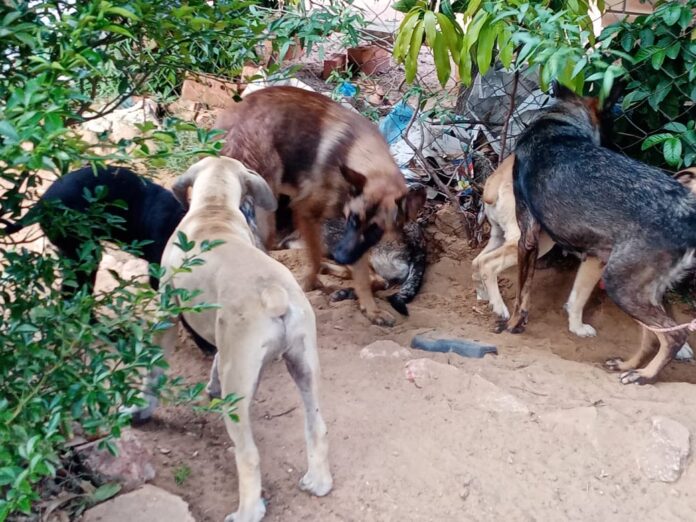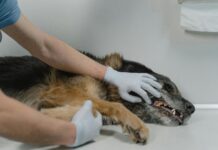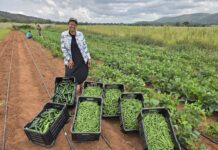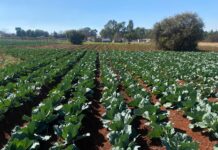African farmers who enlist the aid of livestock guardian dogs see an average 91 percent reduction in livestock losses. In agricultural areas where livestock can fall prey to attacks from wild animals, breeds like the Great Pyrenees are all being used to guard animals. They are part of a sustainable means of farm management that seeks to protect livestock against a plethora of wild species, while avoiding the death of non-target species like large felines. However, guarding livestock against attacks is just one of many roles undertaken by working dogs in Africa.
How Are Dogs Trained to Perform These Challenging Duties?
Guard and herd dogs are often introduced to their “job” from the time they are puppies. They spend a considerable time outside, which is why many of the breeds utilized for this purpose have thick coats. When outside, they also usually have a home with a roof, where they can rest and seek shelter from too much sun or rain. In addition to protecting livestock, they also help round them up so that farmers can better lead the animals to a chosen part of their farm. Training often begins with short working games, with farmers focusing on specific commands. From the very beginning, livestock are used as the modus operandi through which to learn skills such as moving in a circular motion, moving right or left, waiting, and stopping.
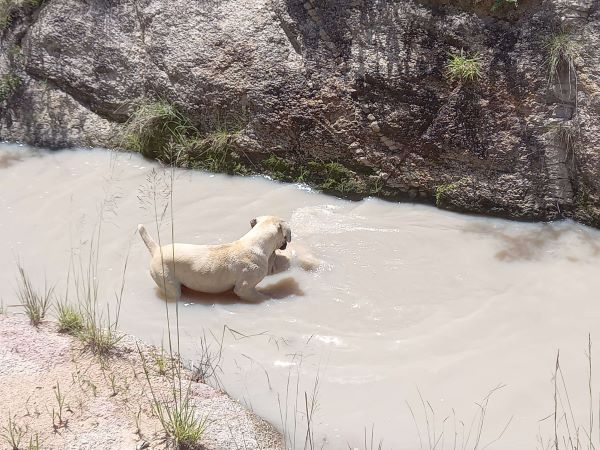 Working Dogs and Physical Activity
Working Dogs and Physical Activity
Young, healthy working canines have specific needs, including regular exercise. Most need around one to two hours of exercise a day though of course, if they are active in farms, they are receiving more than their fair share of physical activity. Farmers work hard to keep their dogs mentally stimulated as well. Working dogs enjoy being given new challenges and receiving rewards for mastering new skills. Therefore, significant training is required when it comes to tasks like rounding up livestock, alerting farmers when threats present themselves, and adapting to new situations.
Challenges for Farms with Working Dogs
There are two main challenges involved when it comes to keeping working dogs on farms. One is wildlife chasing and killing. This issue is particularly concerning in zones where wildlife is considered economically viable, or when they belong to a threatened/endangered species. Research by has shown that the reasons for this behavior are difficult to pinpoint, which makes it difficult for farmers to resolve the problem via effective training. The second obstacle comes in the form of cost. The sustainable use of large breeds by subsistence farmers is sometimes limited by financial resources.
Other Key Roles Played by Working Dogs
Working dogs in Africa don’t limit themselves to outdoor work. These breeds make excellent pets as well, owing to their loyalty and intelligence. Working dogs who are older often fall naturally into this role, spending more time indoors as they need extra protection both from inclement weather and potential predators. Many breeds can also be co-trained to provide additional roles, such as that of supporting visually impaired humans.
Working dogs play many important roles on African farms. Not only do they round up and protect livestock, but they contribute to sustainability because they are a non-lethal means through which livestock predation can be reduced. They have a minor impact on non-target species, which promotes the conservation of the latter. Moreover, working dogs can have various roles throughout their lifetime, transitioning into indoor dogs as they get older, and they are ready to enjoy the perks of retirement.


